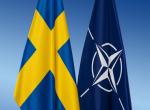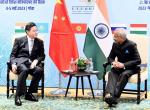A proper atmosphere has to be created for talks between any two countries to progress. In the case of India and Pakistan, with decades of conflict and mistrust poisoning their relationship, it should be all the more necessary to abjure any aggravating action or rhetoric that would foul up the atmosphere even before the talks have begun. If there is sincerity in wanting to turn the page in the relationship, then past tactics have to be discarded. Looking back, however, almost every time that talks are to be held, the Pakistani side has engineered a violent incident on our soil as a pressure point, reminding us of our vulnerability to terrorism and highlighting through such tactics the Kashmir issue as a flash-point between two nuclear armed states that needs international attention. Pakistan has done this again in advance of the proposed meeting of the National Security Advisers of the two countries on August 23 by staging the terrorist incidents at Gurdaspur and Udhampur.
In this there is an uncanny similarity between Pakistani tactics and those of China, whether it was the statement of the Chinese ambassador’s sweeping statement on Arunachal Pradesh just before president Hu Jintao’s 2006 visit to India, the Depsang incident before the Chinese premier’s visit to India in 2013 and the Chumar incident coinciding with the visit of president Xi to India in 2014. Which suggests that in the case of both countries these are well considered political tactics, in which the political and military authorities are complicit. The distinction we make about the “civilian” government and the military in Pakistan is a political and psychological trap that we must not fall into. It is worth remembering that it is not the Pakistan military that originated the two nation theory or was responsible for the partition of India. It was until president Zia began the process of Islamisation of the armed forces, they were supposed to be relatively more “secular” than the rest of the population. It is Pakistan’s civilian population that is the breeding ground of religious hatred of India which, in turn, complements the inimical feelings toward India of the armed forces.
Prime Minister Modi’s decision at Ufa to renew the dialogue with Pakistan despite its ceasefire violations, Nawaz Sharif’s persistence in agitating the Kashmir issue and his adviser Sartaz Aziz’s periodic fulminations against india, to the point of accusing us even of involvement in the Peshawar school terrorist attack, was unexpected. It might be that we felt that reaching out to Pakistan at Ufa, where both became SCO members, would be a reassuring political signal to other members that India, at least, was ready to insulate the SCO agenda from India-Pakistan differences. It may well be, as one understands, that the initiative had come from Nawaz Sharif. The Indian media censure of Modi for cold-shouldering Nawaz Sharif at the Kathmandu SAARC summit might also have been in the mind of our decision-makers.
If Modi’s decision to engage Nawaz Sharif at Ufa caused some unease in sections of our strategic community, the Pakistani PM was pilloried in Pakistan for the agreed joint press release, including from those who participate regularly in Track 2 dialogues with India and are considered “moderates”. That these “moderates” too are unable to overcome the 68 year old Kashmir obsession of Pakistan speaks volumes about the intrinsically negative attitude of the Pakistani establishment towards India. These very “moderates” would you have you believe that there is more negativism about Pakistan in India than there is in Pakistan about India. They make the point that Kashmir was not an issue in the last elections and that Nawaz Sharif genuinely wants good ties with India. If so, why this denunciation of Nawaz Sharif and the Ufa release because Kashmir was not specially mentioned ? Assuming that Nawaz Sharif wanted to de-block the relationship by agreeing to focus on terrorism and restoration of cease-fire on the LOC as priority issues, why attack him for not insisting on a specific mention of Kashmir and having it subsumed instead under the reference to “all outstanding issues”.
Actually, the release was evenly balanced diplomatically, no matter what Pakistani critics say about Nawaz Sharif conceding major ground on Kashmir and our claim that we had set the terms of engagement. Critics on our side would say that we conceded major political ground by resuming high level engagement with Pakistan despite provocations on the LOC and the continuation of terrorist activity against us. The government has created the impression that like the previous government it has also delinked dialogue from terrorism, contradicting the position it had taken when in opposition and even after assuming power. The Pakistanis could view this with satisfaction as a recognition of reality even by the tough new Indian PM that India does not possess the military and diplomatic means to deal with the Pakistani strategy of using terrorism as a political weapon against us. For Pakistan this is a major gain as they will not feel any pressure to change this strategy vis a vis India. It will be business as usual for them, with predictable Indian responses. Pakistan also believes that despite a more robust government being in power, India has, as in the past, yielded to international pressure and realised that the “no-dialogue” position is unsustainable because of international expectations, especially those of the US that remains heavily involved in shaping the end game in Afghanistan with Pakistan’s assistance.
India has generously agreed in the Ufa release that ensuring peace is the “collective responsibility” of India and Pakistan when it is Pakistan alone that has constantly disturbed the peace by recourse to military aggression as well as terrorism over years. It has nurtured jihadi groups and still permits them to carry on their activities against India, calibrated to suit its purpose. At Ufa we agreed that to ensure peace and development all “outstanding issues” need to be discussed, which apart from implying India’s readiness to discuss Kashmir, as it is well understood by both sides that the phrase “all outstanding issues” principally refers to Kashmir, we have played along with Pakistan’s interpretation of this formulation to mean that as long as Kashmir remains unresolved there cannot be peace. In other words, Pakistan will continue to disturb peace till India makes some concession to it on Kashmir.
The formulation on terrorism is also generous towards Pakistan, as we, as victims of Pakistan’s terror, have not sought to distinguish ourselves from our neighbour as the perpetrator of terrorism. The Ufa statement goes on to say that “both leaders condemned terrorism in all its forms”. We obtain no gain in joining hands with Pakistan in condemning terrorism as it only allows the latter to drum up its anti-terrorism credentials. True, Pakistan would genuinely condemn domestic terrorism, but it would be wrong for us to construe this formulation to mean that we have got them to indirectly condemn terrorism directed at us. The phrase “all its forms” is no gain for us either, as for Pakistan this means India’s “state terrorism” in Kashmir, just as the Arabs use this formulation to cover Israel’s suppression of the rights of Palestinians through the use of state force. That both sides agreed to “cooperate with each other to eliminate this menace from South Asia” is window-dressing that gives presents Pakistan as a sincere combatant against terrorism in our region, when the opposite is the case. We should keep in mind that Pakistan, despite sheltering Osama bin Laden, inflicting casualties on US/NATO soldiers and civilians in Afghanistan through its support for the Taliban extremists, including the Haqqani group, continues to obtain military and economic aid from the US. It has succeeded in managing the US to its advantage even when it has duped it. Pakistan no doubt believes handling India by its double-speak, janus-faced policies is much easier by comparison.
The reference in the Ufa release to both sides discussing ways and means to expedite the Mumbai trial, including additional information like providing voice samples, is a bit on eye-wash. The Mumbai terrorist attacks occurred 7 years ago and Pakistan has not moved forward on the trial seriously despite persistent demands from India and pro forma urging from the US, both of which it has learned to materially ignore at no cost. India resumed talks with Pakistan a few months after the Mumbai attacks, was a form of political forgiveness. It signalled to Pakistan that some atonement for this terrible terrorist act was not a pre-condition for re-engaging that country. One more joint statement with India about expediting the trial merely gives it a talking point that it is co-operating with India on the matter. The clause “additional information including voice samples” is a compromise with Pakistan that claims we have not shared enough evidence and our demand for voice samples, which Pakistan will not give by resorting to legal technicalities.
It is too late to ask the question whether, in view of recent terrorist attacks in Punjab and Jammu and the defiant rhetoric of Pakistan’s Foreign Policy and National Security Adviser Sartaj Aziz, we should proceed with the NSA level dialogue. The date has already been settled. Aziz had made it known that he had proposed an agenda to our side for agreement before he would give Pakistan’s consent to the dates proposed by us. One can assume that he has received satisfaction on this score. With the fuss in Pakistan that Kashmir was not mentioned in the Ufa statement, Aziz has to say on return that Kashmir was discussed in his meeting with the NSA. He has also claimed that India had agreed at Ufa to activating a back channel dialogue with Pakistan, something that India denies.
We have had numerous unproductive dialogues with Pakistan already. The forthcoming dialogue will fare no better, especially when Pakistan feels it has improved its diplomatic position in Afghanistan, with the new Afghan president keen to mend fences with it and, as a corollary, has put some distance between himself and India. US and China are banking on Pakistan to stabilise the situation in Afghanistan and are willing to reward it by giving its proxies a share of the political power there. China, in addition, in disregard of Indian sensitivities, is ready to enormously step up its economic, military and political investment in Pakistan, with Russia too seeking openings in the country. It would not be surprising if our dialogue overtures to Pakistan are seen by it as a sign of our weakness and a recognition that we lack other options. We should develop other options first, demonstrate that we have them and then be open to a dialogue with Pakistan.
Published Date: 18th August 2015, Image Source: http://www.thequint.com
(Disclaimer: The views and opinions expressed in this article are those of the author and do not necessarily reflect the official policy or position of the Vivekananda International Foundation)









Post new comment